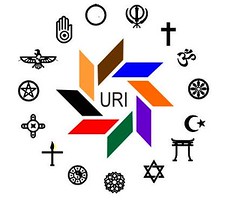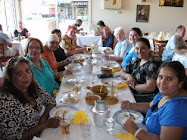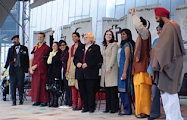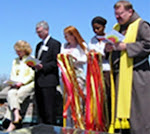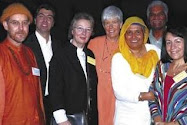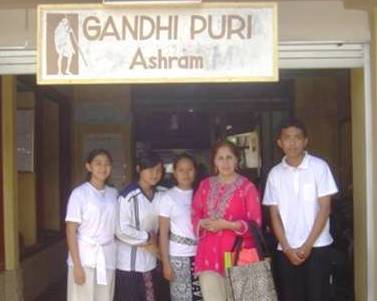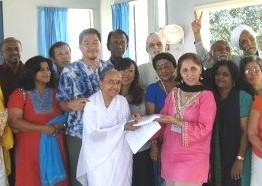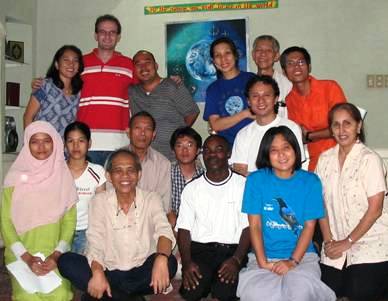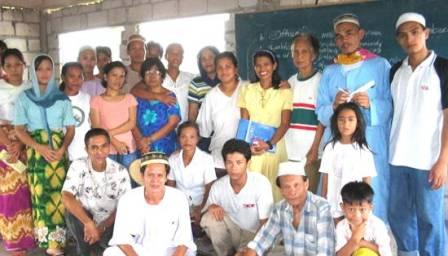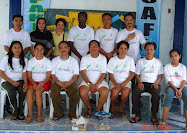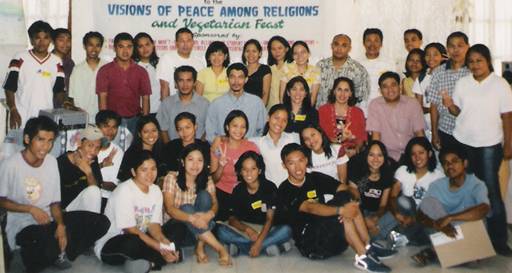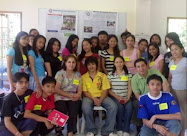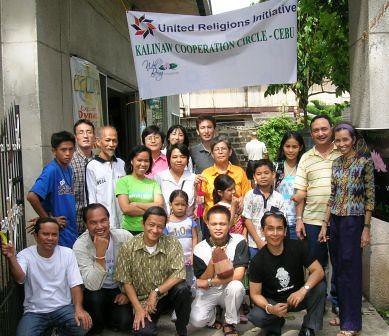My second trip to
This time we went to Tangchi, a small rural agricultural town with about 50,000 residents. It is located in Lujiang county,
We were there to observe for ourselves how the teaching of traditional Chinese morals, values and ethics transformed the townsfolk, with the hope that we can emulate their methods and transform our own society too. We were also to give input from our own cultural, religious and spiritual perspectives and offer comments and suggestions to improve the effectiveness of the programs, and on how to apply them to our own communities.
Master Chin Kung has given talks on peace, loving kindness and harmonious living on numerous occasions to audiences throughout the world. He has shared his wisdom with laymen, academicians, bureaucrats and world leaders. Often he is asked whether it is at all possible to change people from being quarrelsome and crime-prone to kind, respectful and peace-loving citizens. If that is possible, then we will see happier families, and harmonious communities. There will also be less crime, less conflicts, and less wars.
Master Chin Kung believes that the nature of mankind is kindness. It is improper and incorrect upbringing and education that make us otherwise. He decided to prove beyond words that this is true, and that it is possible to change families and communities to become good. The ultimate aim is to achieve world peace through moral and ethics education. This must start with the children, but their parents and elders must also be involved so that the children will not be confused by the conflicting morals and behaviours of the adults.
So with the support of kind donors, he built the Lujiang Chinese Culture Education Centre ( CCEC ) to revive the good traditional teachings to children, adults and parents in the belief that the families and communities that live by these teachings will become peaceful, successful, and prosperous. Tangchi was chosen as the venue as it was his birthplace, and this was one way of honouring it.
Lessons from the Sage
 The syllabus is based on the teachings of the great sage Confucius (Kung Fu Tzu, 551-479 BCE), as simplified in the Di Zi Gui booklet, which teaches the “Standards of Being a Good Student and Child”, and other books of morals, good conduct and character.
The syllabus is based on the teachings of the great sage Confucius (Kung Fu Tzu, 551-479 BCE), as simplified in the Di Zi Gui booklet, which teaches the “Standards of Being a Good Student and Child”, and other books of morals, good conduct and character.
The project started in 2005. The first task was getting teachers who believe in the same dream and aspirations, and were willing to become models to the students and the community. Fortunately, there were enough committed people who were willing to be trained, led by Teacher Cai and Teacher Chou, who all along believed in the teaching of the traditional values as a means of transforming the world for the better, and were willing to dedicate their lives to this noble cause.
It is under their leadership, with the guidance and wisdom of Master Chin Kung, that the first batch of teachers was intensively trained for 2 months until they became models of good values, virtues and character. By 2006, CCEC was ready to spread its teachings. Only then did the centre invite children, parents and everyone from the town to become students, free of charge, courtesy of generous donors.
The teachers also went out to the community, giving lessons in the homes, village halls and courtyards, and schools. There is a permanent open-air classroom (which also doubles as a theatre) on the park by the riverside right in town, to make it convenient for the people to attend classes.
The lessons are always enjoyable and practical. Starting from teaching children to love, respect and honour their parents and elders (which the latter should reciprocate with love and care), the lessons for adults include values, virtues and morals regarding relationships between husbands and wives, within the family, among friends, in the neighbourhood, community, workplace and in dealing with the authorities, among others. Lessons also include singing, acting, arts and craft, and other activities that can instill good values, encourage usable and valuable skills, and uplift their earning potential at the same time.
Much emphasis is placed on filial piety, something that is established in all Eastern cultures, but is being gradually eroded as the younger generation gets influenced by the western norms that come through the media and TV, and their parents are too busy chasing money and worldly comforts.
Children are taught to bow to their elders, and on certain occasions, to wash their parents’ feet as a mark of love and respect. Everyone is taught to greet others with kind words, a smile, and a bow. So it was a delightful experience as we happily greeted, smiled and bowed to all the people we met, and received their greetings, smiles and respectful bows in return. How wonderful and harmonious the world can be if we all love and respect one another like this!
Values and virtues like love, forgiveness, kindness, trust, justice, integrity, shamefulness and others are painstakingly explained through examples and actual stories of people who have found imbibing these principles into their lives beneficial and life-changing. There are many such examples, of saved marriages, reconciliations, and even reformation of convicts, through the practice of these teachings. On several occasions my eyes were teary listening to these heartwarming lessons.
Amazingly, within only 3 months of the teachers reaching out to the community, there was noticeable change. People became more honest, courteous, and kind. Less rubbish was being thrown around, and people actually started to help clean up should they stumble upon such rubbish. After one year, the authorities reported that the divorce rate was reduced by 48% and the crime rate was down by 47%! As the whole town continues to transform as more and more people learn and practice the good traditional teachings, Tangchi town will indeed become a “Model Township of Harmonius Society”. It is Master Chin Kung’s dream to see the success of Tangchi being replicated in other places, including in
A Harmonious World Begins With Me
This method works because the emphasis is first in transforming the teachers themselves. So it is appropriate that the theme of this study tour was “A Harmonious World Begins With Me”. As Mahatma Ghandi said, we must be the change we want to see. So if you want to see a harmonious world, you must first have a harmonious personality and live a harmonious life. Then the family, community and world around you will benefit and improve a certain degree because of you.
At one interfaith meeting recently, I was asked by a non-Muslim why the Malay/Muslim community here is burdened by many social problems like truancy, poor academic performance, drug addiction, high divorce rates, etc. even though all the children go thorough religious lessons (which also teach similar good values and ethics) throughout their formative primary school years, since it is part of the school curriculum for Muslims ?
My answer was - it is not enough that the content of the lessons are good; the teachers, parents and adults around the children must themselves be living examples of what is being taught so that the children fully understand the goodness, and know how to put the teachings into practice by observing the teachers and elders. That is, the teaching method must be theory combined with living example.

